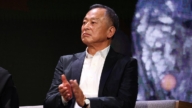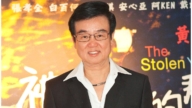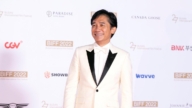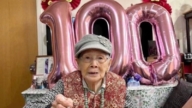【新唐人2012年11月15日訊】「中文大學」最近進行民意調查發現,港人承認自己是「中國人」的比率,創下97年回歸後的新低,香港媒體解讀,香港的「人心沒有回歸」。而中共喉舌《環球時報》13號指責這份民意調查:不嚴謹,不應該把「香港人」與「中國人」並列調查等,並且恐嚇香港學者「遠離政治喧囂」。那麼,「香港人」又如何看待中共媒體的說詞呢﹖下面請跟本臺記者一起去了解,聽聽「香港人」怎麼說﹖
10月中旬,香港「中文大學傳播與民意調查中心」,以電話的形式訪問了819名港人,要求受訪者回答:自己屬於哪一類人,四項選擇為「中國人」、「香港人」,和「香港人,但也是中國人」或「中國人,但也是香港人」。
調查發現,有42%的受訪者選擇自己是「香港人,但也是中國人」;承認自己是「中國人」的受訪者只佔12%,其中,「80後」的港人僅有2.4%選擇自己是「中國人」,創下香港97年回歸以來的最低點。
香港作家、自由撰稿人張成覺指出,這份調查是港人的真正民意。他說,大陸人都說來生不做中國人,而港人今生就有機會不做中國人。
香港作家張成覺:「本世紀已來,大陸經濟發展,所造成的環境破壞危及子孫後代,這些景像已經令人怵目驚心。那麼從政治上來說,好多問題,你比方說,對言論自由的扼殺,對異見人士的一種非法禁錮或者是虐待等等,所以這些暴政,在香港同胞裏面肯定是引起很大的不滿。」
今年6月初,湖南「民主鬥士」李旺陽被虐殺後,超過2萬5千名港人前往中聯辦,要求調查李旺陽的死因真相,還有人焚燒黨旗,高喊打倒共產黨,要求中共下臺。
7月底,香港「民間反對國民教育科大聯盟」發起了「反洗腦教育」大遊行,有9萬港人走上街頭,要求中共徹回扼殺學生自由討論的課程。
張成覺:「中國在政治上,經濟上,以及在文化上或者道德上,各方面情況都使人覺得這不是一個現代文明社會應該有的,背離了全世界的發展潮流。大陸喜歡說與國際接軌,與時俱進,但實際上它種種做法都背道而馳,在這種情況下,香港同胞對中國人身份的認同,肯定是越來越持有一種抗拒的心裡。」
香港「中文大學」的這份民意調查公布後,《明報》12號發表《港人國民認同感見新低,抗拒國旗國歌新高》的文章;而《晴報》則發表了《港人認同中國人身份創新低》的新聞,報導了「香港回歸,人心沒回歸」這一現狀。
13號,中共喉舌《環球時報》卻以「香港某些調查少搞為好」的評論文章回應,狠批這份民調不嚴謹,不應將「香港人」與「中國人」並列調查,並指責香港媒體「斷章取義、掐頭去尾、生搬硬套」,令「假命題」成了「真新聞」等。
文章還警告恐嚇香港學者不要再做類似民調,「遠離政治喧囂,少玩『滴血認親』的鬧劇。」結尾還引用中共總書記胡錦濤在十八大上的報告,要求港人走「共享做中國人的尊嚴和榮耀」路線。
香港時政評論員程翔指出,中共與其這麼緊張的批判香港人,倒不如自己檢討一下它的政策出了甚麼問題。
香港時政評論員程翔:「因為你看香港人對中聯辦經常干預香港,事無大小,從區會選舉到立法會選舉,到特首選舉,每一級選舉,中聯辦的手都伸得長長的,中聯辦的背影都在很多選民的背後,像這些,你中共的政策讓大家覺得做中國人沒有尊嚴,沒有吸引力。」
程翔還指出,中共對香港「一國兩制」的承諾從來沒有兌現,自香港回歸開始,就不斷干預香港的運作,現在又出手打壓、恐嚇香港學術界。
今年的7月1號,香港主權移交15週年,有40萬港人走上街頭,抗議中共操控香港,破壞了「一國兩制」及高度自治。
採訪編輯/李韻 後製/葛雷
CCP Upset With Hong Kongers’ Non-Chinese Verdict
Recently, the Chinese University of Hong Kong (CUHK)
published the results of a poll on Hong Kong residents.
They show, the number of Hong Kong residents, regarding
themselves as “Chinese” has hit a record low since the Handover in 1997.
Hong Kong media noted, such results show the Handover
had not won the Hong Kong’s people sentiment.
However, the Chinese Communist Party’ (CCP) Global Times
published a critical to the poll article on November 13.
The article describes the poll as “imprecise”, claiming that
it should not make people choose between “Hong Konger” and “Chinese.”
It even intimidated the Hong Kong scholars
to “stay away from politics.”
How did the Hong Kong people responded
to this criticism from the CCP’s media? Let’s take a look.
CUHK’s Communication and Public Opinion Survey Center
interviewed 819 Hong Kong residents In Mid-October.
The interviewees were requested to answer the question
about which group they think they belong to.
The answer’ options were ‘Chinese,’ ‘Hong Konger,’
‘Hong Konger but Chinese as well,’ ‘Chinese but Hong Konger’ as well.’
The survey found that 42% answered
‘Hong Konger but Chinese as well.’
Only 12% of all the interviewees and 2.4% of post-80s born
regarded themselves as “Chinese” only,
which hit the historic low since the Handover in 1997.
Hong Kong freelancer Zhang Chengjue believes,
the poll has reflected Hong Kong’s real public opinion.
Zhang remarked that even many mainlanders said,
they wouldn’t be Chinese again in their next life;
it’s not surprising that Hong Kong people did the same
when they were given the chance to choose in this life.
Zhang Chengjue: ”Although China’s economy has
developed much in this century,
the resulting environmental disruption is horrifying
and has already threatened our future generations.
There are also numerous problems in the CCP’s politics,
such as suppression on freedom of speech and illegal arrests or torture of dissidents.
All these tyrannical acts have definitely led
to a lot of grudges among Hong Kong’s people.”
After the Hunan democrat Li Wangyang was murdered
this June, over 25,000 Hong Kong residents protested.
They gathered at the Liaison Office in Hong Kong, requesting
investigation of the truth behind Li Wangyang’s death.
During the gathering, some even burned the CCP’s flags,
and demanded the CCP steps down immediately.
In late July, Hong Kong’s “Alliance of Activists against the
National Education Program” organized a demonstration to protest the “brainwashing education program.”
Over 90,000 Hong Kong residents walked down the streets,
requesting CCP to cancel its planned courses aiming at suppressing the free minds of students.
Zhang Chengjue: ”CCP’s regime makes you feel none of its
characteristics is consistent with a modern civilization, either politically, economically, culturally or morally.
It just deviates from the global trends of development.
CCP uses terms like “geared to international standards,”
and “keeping up with the times” to describe itself.
Yet, in reality all its acts are just showing the opposite.
In this situation, the Hong Kong people will have more
mental resistance to identify themselves as Chinese.”
After CUHK announced the results of the survey,
the Ming Pao published an article on November 12.
It was titled, “Hong Kong’s sense of national identity hits
record low, while resistance to national anthem and flag reaches record high.”
The Sky Post also released news titled, “Hong Kong’s sense
of identity as Chinese drops to historic low.”
It reported that “the Handover did not win
the Hong Kong’s popular sentiment.”
On November 13th, CCP’s mouthpiece media Global Times
responded to the survey with a review article titled,
“Hong Kong had better cut down surveys of particular kind.”
The article described the poll as “imprecise,” and criticized
that it should not have made interviewees choose between “Hong Konger” and “Chinese.”
It also blamed Hong Kong media for their “garbling and
improper remarks” which convert a “false statement” into “real news.”
The article even warned Hong Kong scholars
with an intimidating tone to not do such surveys any more,
to “stay away from political clamor,” and to “stop
playing games of dropping blood for kinship test.”
In the end, the article cited the CCP’s general secretary
Hu Jintao’s words at the 18th National Congress, requiring Hong Kongers to “share their dignity and glory as Chinese.”
Hong Kong political commentator Cheng Xiang remarked,
rather than nervously criticizing Hong Kong,
the CCP should look inward to find out the problems
of its policies.
Cheng Xiang: ”You can see how the Liaison Office has often
intervened with Hong Kong’s internal affairs, small or big.
At each level of election, including the district council,
legislative council and executive chief,
the Liaison Office has extended its arms as much as possible
and cast shadow over many voters.
All these CCP’s policies have made us feel no respect
or attraction to recognizing ourselves as Chinese.”
Cheng Xiang further remarked that the CCP’s promise
of “One country, two systems” has never been kept.
Since the Handover, it has never stopped intervening
with the business of Hong Kong;
now it even publishes articles to intimidate
Hong Kong’s academic circles.
On the 15th anniversary of Hong Kong’s Handover this July 1,
400,000 Hong Kong residents joined the street protest against the CCP’s manipulation of Hong Kong affairs,
which violates the policy of “One country, two systems”
and infringes upon Hong Kong’s high degree of autonomy.




























